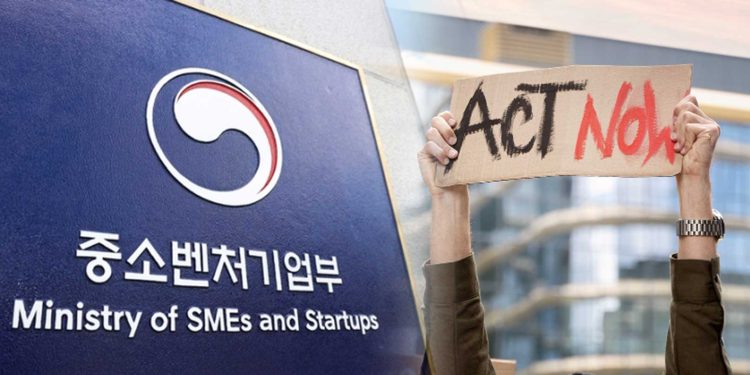The 2025 national parliamentary audit of South Korea has once again placed the Ministry of SMEs and Startups (MSS) and its affiliated institutions under scrutiny—this time for ethical lapses, fund mismanagement, and toxic investment clauses that threaten the credibility of Korea’s venture finance system. As lawmakers examined the internal governance of public venture institutions in the national audit, new revelations of embezzlement and contract abuse signaled deeper structural weaknesses in the country’s public-backed startup financing ecosystem.
Korea’s Startup Funding Integrity Under Fire at 2025 National Audit
At the October 23 audit of the National Assembly’s Industry, Trade, and SMEs Committee, multiple agencies under the MSS—including the Korea SMEs and Startups Agency (KOSME), the Korea Venture Investment Corporation (KVIC), and the Korea Technology Finance Corporation (KIBO)—faced questioning over ethical and operational lapses.
Lawmakers revealed that a KOSME employee embezzled roughly KRW 2.9 billion (about USD 2.2 million) between 2018 and 2024 by creating a fake advertising company and funneling public funds through falsified documents. The incident, only uncovered years later, exposed weak internal oversight and a lack of accountability. Despite the scale of loss, only minor disciplinary warnings were issued to those in the approval chain.
Separately, the Fund of Funds, Korea’s core investment vehicle for venture capital, faced criticism for allowing sub-funds to include “toxic clauses”—contract terms requiring startups to pay up to 20% annual damages if IPO targets are missed. Lawmakers questioned why such unfair provisions appeared in funds partially financed by government capital.
KVIC CEO Lee Dae-hee admitted the clause was “undesirable,” but noted,
“The Fund of Funds accounted for only about 3% of the total investment, so our authority to enforce corrective oversight was limited.”
More from National Audit 2025: Oversight Failures in Public Financing Institutions
The audit also revealed broader systemic weaknesses in Korea’s public credit and venture support institutions. Lawmakers raised concerns over how policy financing agencies supervise funds and manage risk, warning that loose controls could lead to moral hazard and misuse of public resources.
Rep. Park Sang-woong of the People Power Party pointed out,
“Since the abolition of joint guarantees, there’s now a widespread perception in the field that once a corporation is established, individuals are automatically exempt from liability. Isn’t this leading to growing moral hazard?”
KIBO (Korea Technology Finance Corporation) President Kim Jong-ho responded that the institution is strengthening its contractual systems,
“We will strengthen our contractual systems and internal controls, and ensure more rigorous on-site verification.”
Meanwhile, Home & Shopping, another government-affiliated enterprise, faced separate criticism over a workplace misconduct case, further highlighting the need for stronger governance and ethical compliance within public-funded agencies.
Leaders Respond as Oversight Failures Shake Public Trust
KOSME President Kang Seok-jin acknowledged institutional responsibility, stating:
“As the head of the organization, I sincerely apologize. We are reinforcing systemic safeguards to prevent similar incidents and strengthening management accountability.”
Similarly, KVIC CEO Lee Dae-hee conceded,
“We agree that unfair contract clauses in government-backed funds are inappropriate and are reviewing guidelines to improve fund governance.”
KIBO President Kim Jong-ho added that the institution is tightening contract verification procedures and on-site monitoring to reduce moral hazard among guaranteed startups.
Despite these commitments, lawmakers emphasized that apologies are no substitute for reform, urging concrete measures to protect public capital in Korea’s venture market.
Investor Confidence at Stake: Lessons from Korea’s Public Venture Crisis
Following the previous findings in SME policy’s tech protection flaws, what the 2025 national audit reveals this time raises deeper questions about how Korea’s public venture model balances speed and accountability, especially knowing the fact that they are built to catalyze early-stage innovation.
These findings underline a growing concern, especially for global investors and founders intending to enter South Korea through MSS programs like TIPS. After all, with such grave levels, these cases have gone beyond mere misconduct, turning into signals that the country’s innovation governance may not yet match its policy ambitions.
Korea’s Fund of Funds, operated through KVIC, is central to venture capital formation and cross-border partnerships. Its perceived credibility influences how global limited partners and venture funds evaluate the Korean market.
Similarly, persistent credit oversight issues at KIBO and ethical failures at KOSME risk undermining confidence in public guarantee mechanisms that underpin startup lending and policy funding.
While the Ministry has pledged new reforms—including digital oversight and AI-integrated audit systems—investors will be closely watching whether these translate into measurable transparency and enforcement.
Rebuilding Trust in Korea’s Public Venture Governance
At the end of the day, the 2025 National Audit reflects a critical inflection point for Korea’s startup governance. Because as the nation aspires to become a top-four global venture hub, public financial institutions must not only fuel innovation but also embody transparency and ethical discipline.
Rebuilding trust will require systemic correction—clearer fund oversight, real-time monitoring of public guarantees, and stricter accountability for fund managers and officers.
And only then can Korea reassure global investors that its startup finance ecosystem is both innovative and trustworthy.
🤝 Looking to connect with verified Korean companies building globally?
Explore curated company profiles and request direct introductions through beSUCCESS Connect.
– Stay Ahead in Korea’s Startup Scene –
Get real-time insights, funding updates, and policy shifts shaping Korea’s innovation ecosystem.
➡️ Follow KoreaTechDesk on LinkedIn, X (Twitter), Threads, Bluesky, Telegram, Facebook, and WhatsApp Channel.






